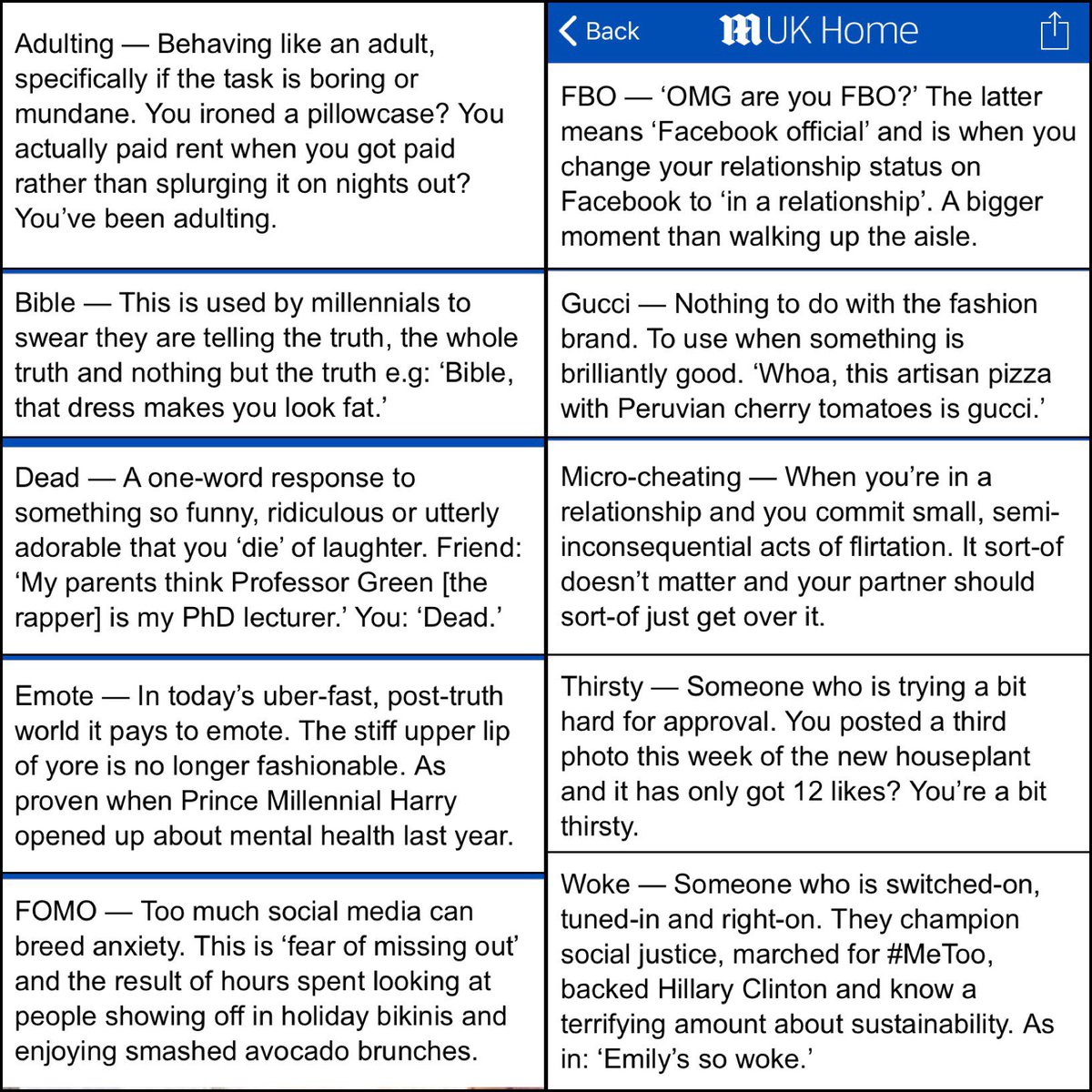

But it has a long history and is connected to rock-n-roll music. The slang verb rock, generally meaning “to be excellent,” is recorded in the 1980s. The earliest usage of the word was found in the 80s and is related to a psychedelic drug trip, which in itself is a phrase from the early 50s. If someone says you’re trippin’, that means you’re acting like a fool, being too excited, or being too bothered about something. It is credited to Black slang in the 1980s, which is very much still in use today, with many famous musicians creating “Diss Tracks” to poke fun at other people in the industry.
GENERATIONAL SLANG PROFESSIONAL
It was used to define “young, ambitious, and well-educated city dwellers who had a professional career and an affluent lifestyle.” It is mainly used in a derogatory sense as the yuppie has been commonly made fun of in pop culture.ĭiss (also “dis”) is shortened from disrespect, and when you diss someone, you insult them. The word is based on an acronym formed from the initial letters of “young, urban professional”. The phrase shortened over the years to just “banger, “meaning a song is really good. Headbanger entered the language in the early 80s and is used to refer to someone who loves heavy metal music.

One of the hallmarks of Gen X culture is its musical contributions, including punk rock and grunge.

It is commonly used to poke fun at California surfer dudes in film and pop culture. Slang has a habit of flipping bad things into good things, and the phrase evolved to mean “amazing”.

This phrase came from the surfing culture in the late 1970s and meant that a wave was “challenging” or “frightening”. You can use this to tell someone they are overreacting or too stressed and to chill out (an older expression). See what other words you can expect to hear regularly from your Gen Z coworkers, with definitions from EBN's own resident "Gen Z expert.This rhyming slang phrase plays on the idea of medicines relaxing someone, which was used as early as the 1980s. As with all workplace jargon, it's always best to always ask before making an assumption. For example, if a Gen Z coworker suggests that your office party is "going to be lit," it might not be a good thing, if meant sarcastically. Even buzzwords can change meanings, and sometimes Gen Z will use them ironically. Preply warns older employees to be careful when trying to decipher the meaning of words they don't understand. This compares to baby boomers' favorite phrase, which was "ducks in a row." Other popular slang includes "no cap" (said when they're telling the truth), "bet" (when they're accepting a challenge), "lit" (when they think something is cool) and "basic" (for when they think something isn't). Read more: 'Work hard, play hard?' 10 buzzwords applicants hate to see in job postings The word "vibe" was ranked the most commonly used phrase by Gen Z - the term usually refers to the kind of atmosphere or overall sentiment they have for the subject they're talking about. To avoid getting lost in translation, Preply surveyed over 1,000 working professionals to find out which buzzwords Gen Z uses the most. But with Gen Z slated to make up over 60% of the workforce in the next decade, it's important to be able to understand and communicate effectively. The generational divide in offices has never been more pronounced than it is now, with up to four generations working at a time. Having a hard time understanding your Gen Z employees? Have no fear - a recent survey from e-learning platform Preply can help you wade through unfamiliar terms and confusing slang.


 0 kommentar(er)
0 kommentar(er)
